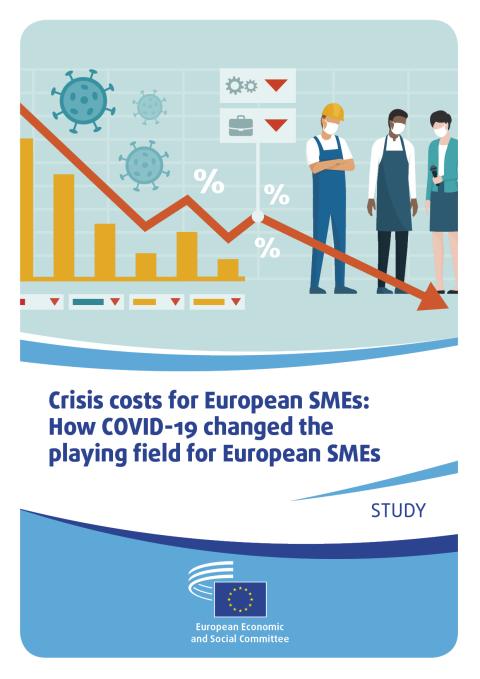European Economic
and Social Committee
Crisis costs for European SMEs
How COVID-19 changed the playing field for European SMEs
The advent of the COVID-19 pandemic has become the landmark for one of the greatest recessions ever experienced. As such, many Small and Medium Enterprises (SMEs) were exposed to financial and employment-related losses. However, not all industry sectors suffered same negative rates of income or job disruptions and there is still limited evidence on the matter. In addition, the invasion of Ukraine from Russia has become the trigger for a new wave of economic crisis for all business sectors and sizes.
Therefore, the objective of this study is to develop a systematic classification of COVID-19 (and international crisis)-related impacts on SMEs. It also includes an identification of “winning” or “losing” adaptation factors shaping crisis management. To achieve its finalities, the study develops an explanatory framework by generating six categories of “pandemic challenge areas” (Containment Measures, Workforce, Finance, Digitalisation, Public Assistance, European Diversity) and a targeted performance analysis for SMEs in 6 industry sectors (Manufacturing, Construction, I&R, Tourism, Agro-Food, Retail) over an EU-12 sample of countries. Based upon research evidence, the study ultimately proposes a list of policy recommendations for recovery and competitiveness of SMEs alongside four pillars (emergency support, regulation & governance, training & skills and innovation, sustainability & cohesion).
Downloads
-
Crisis costs for European SMEs

